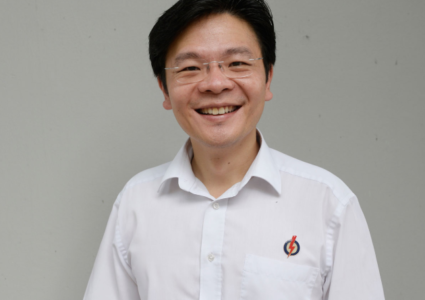Deputy Prime Minister Lawrence Wong outlines key shifts in Singapore’s social compact, focusing on education, skills, and social support for all.
SINGAPORE: Deputy Prime Minister Lawrence Wong emphasized that Singapore’s concept of meritocracy is too narrow and needs to evolve, particularly in how schools and grades are perceived, in a speech delivered in Parliament on April 17.
“Many feel trapped in a rat race from a young age—under pressure to achieve top grades, secure spots in prestigious schools, and earn university placements,” said Wong, who is widely expected to become Singapore’s next Prime Minister. This was a central point in his address, which outlined five key shifts in Singapore’s updated social compact: new approaches to skills development, social support, the care of seniors, a redefined notion of success, and a renewed commitment to collective responsibility.
Wong emphasized that if these shifts are successfully implemented, they could strengthen the social compact not just for the present generation, but also for future ones. His remarks came in response to President Halimah Yacob’s address on April 10, which set the agenda for the next phase of the government’s term, focusing on four broad themes: expanding opportunities for all citizens, strengthening social safety nets, building a smart and livable city, and fostering a deeper sense of shared identity and mutual responsibility.
The DPM acknowledged the “stark realities” facing Singapore and the world—global tensions, economic uncertainty, and the risks to an open and stable international order. However, he assured the public that the government would do all it could to alleviate the stresses people are feeling. “We will build on our strong foundations, but we must also have the courage to change where change is needed,” he said, referring to the ongoing “Forward Singapore” initiative, through which the government is reviewing national policies.
Refreshing the Education System
On the issue of education, Wong emphasized that the traditional focus on grades and academic achievement needs to be re-examined. “It’s not possible to change something that’s become so ingrained in our nature by government decree. We must all be the change we want to see,” he said. He encouraged Singaporeans to allow themselves and their children more room to explore and develop their unique talents, moving away from the intense focus on grades and academic rankings.
Wong noted that Singapore has already made strides, such as eliminating PSLE T-scores and replacing streaming with full subject-based banding. “These changes are designed to reduce stress in our education system, but more importantly, they signal that we are serious about refreshing the system,” he said.
The Deputy Prime Minister also outlined a broader vision for meritocracy—one that continues throughout a person’s life. “We will create a society that fosters continuous learning, where opportunities are available for everyone, at every stage of their lives,” he said, stressing the importance of a “learning society” in contrast to the idea of a welfare society that others may pursue.
A Broader Definition of Success
Wong also addressed the need to redefine success in Singapore, which has traditionally been defined by material markers such as salary and property. “How can we shift our lens to embrace a broader definition of success?” he asked. “Success should be about becoming the best possible version of ourselves.”
For this shift to be effective, Wong argued that economic structures, wages, and career prospects must also be adjusted. “We need to ensure that those graduating from ITEs and polytechnics are assured that their wages and career prospects will not be too far below their university-going peers,” he said, advocating for equal opportunities regardless of academic background.
In addition, Wong called on Singaporeans to accept the idea of paying a higher price for goods and services in order to raise wages and support those who keep society running. “When we support the most vulnerable, we uplift society as a whole,” he stated.
Targeted Social Support
Wong also spoke about the need for a more targeted approach to social support, focusing on empowerment rather than mere assistance. “We want to not only help people get through tough times but also give them the agency to take control of their circumstances,” he explained. Initiatives like the Fresh Start Housing Scheme, which helps lower-income families buy homes, exemplify this shift toward empowerment.
For people with disabilities, Wong committed to reducing the financial burden on families and improving access to care, while working to enhance the dignity and potential of differently-abled citizens. He also outlined plans to support displaced workers through a targeted re-employment scheme, helping them transition into new careers while continuing their education and training.
Caring for Seniors
With Singapore’s aging population, Wong highlighted the growing need for sustainable eldercare. He introduced Healthier SG, a scheme that shifts focus from illness treatment to health promotion. The government will invest in infrastructure, including community care apartments, active aging centers, and home-based care services, to help seniors age in place.
The DPM also discussed the importance of building a more collective society where citizens share responsibility for each other’s welfare. “Our refreshed social compact is about all of us coming together, to forge a society of opportunities and assurance for everyone,” he said, urging Singaporeans to embrace a more holistic approach to life, from work arrangements to mental health.
Wong concluded by reaffirming the government’s commitment to the social compact, emphasizing that while change will take time, every citizen must contribute to making the vision a reality. “Forward Singapore is a bold agenda, but it depends on all of us to realize,” he said.








